Maurice French of the Chippewa of the Thames First Nation is a driving force in the Indigenous cannabis industry. Four years after his shop was raided at the direction of the elected Chief, all charges have been dropped against him. So why did the Band Council collude with the OPP to violate his constitutionally protected Aboriginal and Treaty rights?
CHIPPEWAS OF THE THAMES – Today, there are over 300 Indigenous cannabis dispensaries operating across Canada on a sovereign basis. These stores do not purchase their product from Canada’s Licensed Producers. They do not follow Health Canada’s regulations, they don’t collect tax, and they operate on unceded Indigenous lands in accordance with the customs of their people. Unlike the Provincially regulated dispensaries, they can and do provide medicinal information about cannabis to their customers, and they have been a key driver in building an independent economy for Indigenous people on their territory. Like the tobacco industry, these shops are the living proof of the Aboriginal and Treaty Rights of their Indigenous owners to trade cannabis and provide medicine.
However, the rapid growth of the Indigenous cannabis industry does not mean that it’s all been smooth sailing for Indigenous entrepreneurs. Take the case of Maurice French, a Crane Clan man from the Chippewa of the Thames First Nation (COTTFN). In September of 2017, Mr. French opened a variety store with gas pumps and tobacco sales at his home in Chippewa of the Thames. Business was going well during his first year of operation.
Then, in March of 2018, the Canadian government announced that it would be legalizing cannabis in the fall. Aware of the successful growth of the Indigenous cannabis industry in other Indigenous communities, Mr. French began to consider the possibility of adding cannabis products to his line of business. His father “Dutchie,” a founding member of the American Indian Movement, an avid cannabis consumer – and a Band Councillor – encouraged him to open the store to provide a safe and trusted supply of medicine in the community.
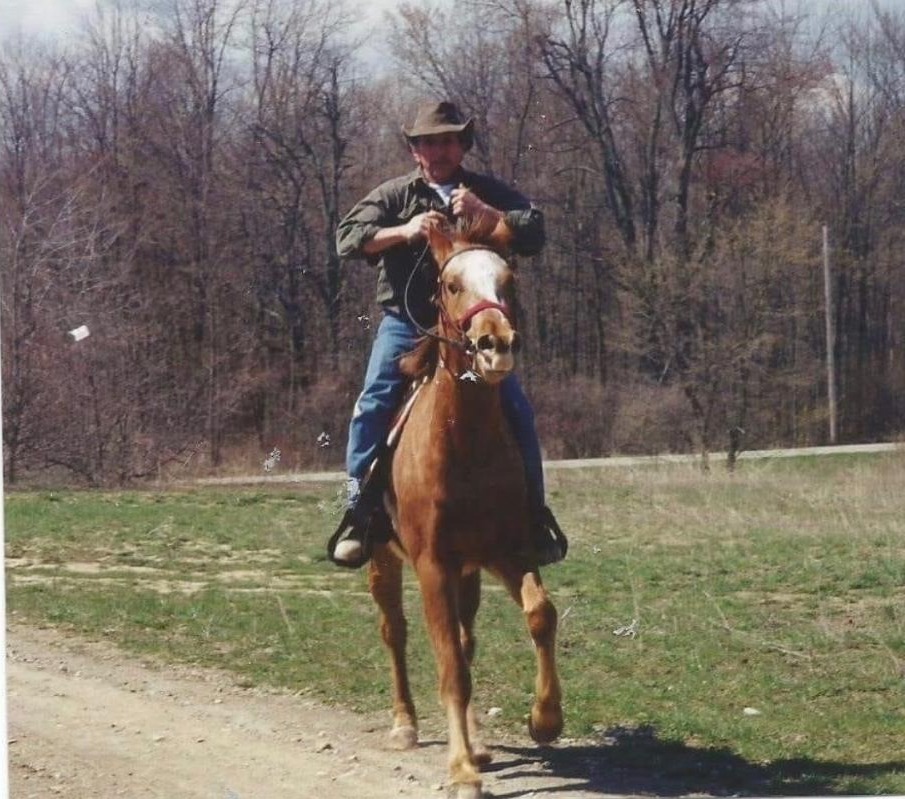
In the summer of 2018, French went to see Myeengun Henry, the elected Chief of the Chippewas of the Thames Band Council. The elected Chief invited French to sit on the floor with him on the skin of a buffalo he had raised and killed himself. The two talked over a drum about the cannabis shop. According to Mr. French and his wife Samantha – who took notes during the meeting – Elected Chief Henry expressed his support for Mr. French’s efforts as long as he didn’t put up cannabis related signage and didn’t publicly advertise the business or sell to those under 18 years of age. According to Mr. French, the elected Chief “even said that he’d bring his father over to get some CBD products when the store was open!”
The elected Chief’s position echoed the perspective of the people of the Chippewa of the Thames, who in a survey run by Band Council, indicated by a margin of 78% that they supported the rights of individual entrepreneurs to open cannabis shops on the territory.
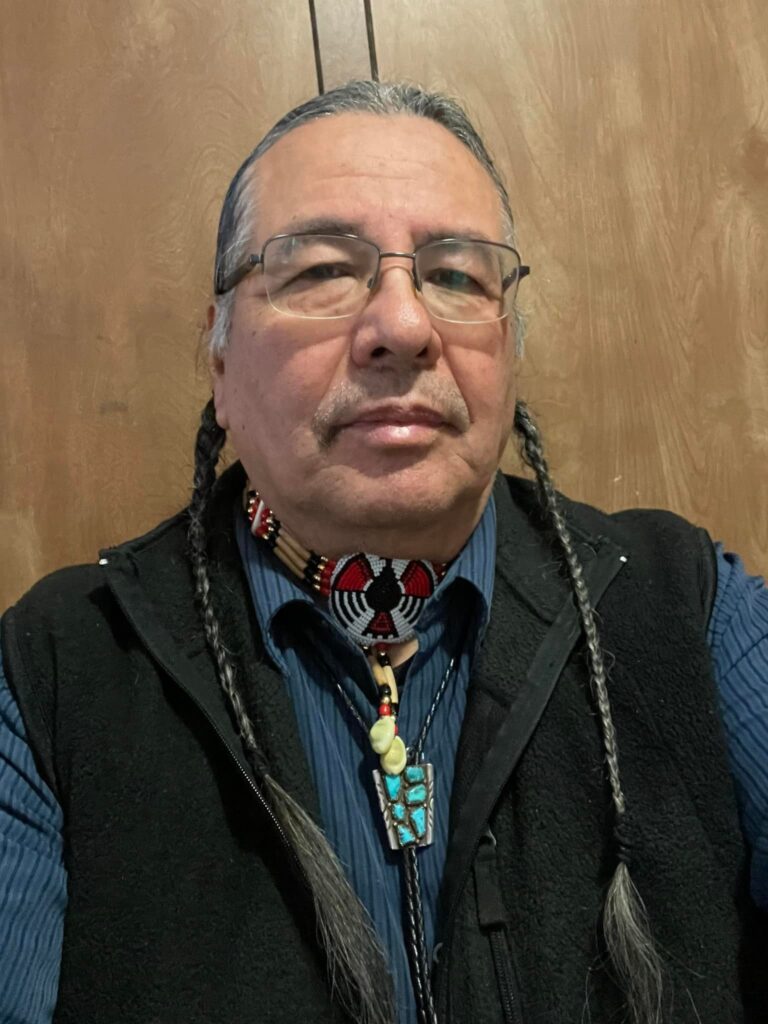
After his meeting with Elected Chief Henry, Mr. French opened up a small cannabis shop on his property that he called the Way Forward Healing Centre. The healing centre specialized in medicinal cannabis products. Community members flocked to the store. Business expanded, and within a few weeks Mr. French’s store was employing workers from seven different families in the community.
As has been the case elsewhere with the Indigenous cannabis industry, Mr. French’s store became a kind of social safety net for people and projects that Band Council programs can’t or wouldn’t fund. Within the first three months of the store’s operation, Mr. French made numerous contributions to community projects and people in need. He donated hockey jerseys to a children’s sports team in the community and provided money for hotel rooms to another team. Aware of a pressing lack of educational supplies, the Way Forward Healing Centre bought $3000 worth of school supplies at Walmart and donated them to the Wijii public school. The store also contributed a $500 jackpot to the Chippewa Toy Bingo and donated another $1000 to help send a men’s drum group to Winnipeg.
As its name implied, the Way Forward Healing Centre was strictly focused on medicinal cannabis options. The centre operated on a membership basis, and as Mr. French pointed out, “We decided to stock creams, salves, tinctures, oils, and provided medicine for the community. We saw big impacts from people using Rick Simpson Oil to treat seizures. People were using our tinctures to get off percocets and hydromorphone. We were changing lives for the better.”
No good deed goes unpunished
Just as the Way Forward Healing Centre was hitting its stride, it was raided without warning on December 21, 2018 by members of the Ontario Provincial Police and the London Police Service. The Chippewas of the Thames Police sat and watched the raid from a distance. In a state of shock, Mr. French immediately got on the phone with Elected Chief Myeengun Henry to ask him what was going on. According to Mr. French, the elected Chief told him that he knew nothing about the raid, and that it wasn’t him who called the police. However, police reports later received by Mr. French as part of his disclosure indicate that Chief Henry called the police because of a supposed “safety issue to the public.”
Mr. French was devastated. Not only did he lose the money and product from his cannabis shop, but the raid happened on the day that his tobacco and gas supplies were being delivered. The cops seized the cash for these orders as well, and even went into his wife’s purse and took $3000 of her own money three days before Christmas. Christmas 2018 was a bleak affair for Mr. French and the seven other families benefiting from his store. With the raid dealing a body blow to all aspects of his business and impeding his cash flow, Mr. French was forced to close up shop. He paid out what he could to his employees, but lost his life savings and a business that he loved.
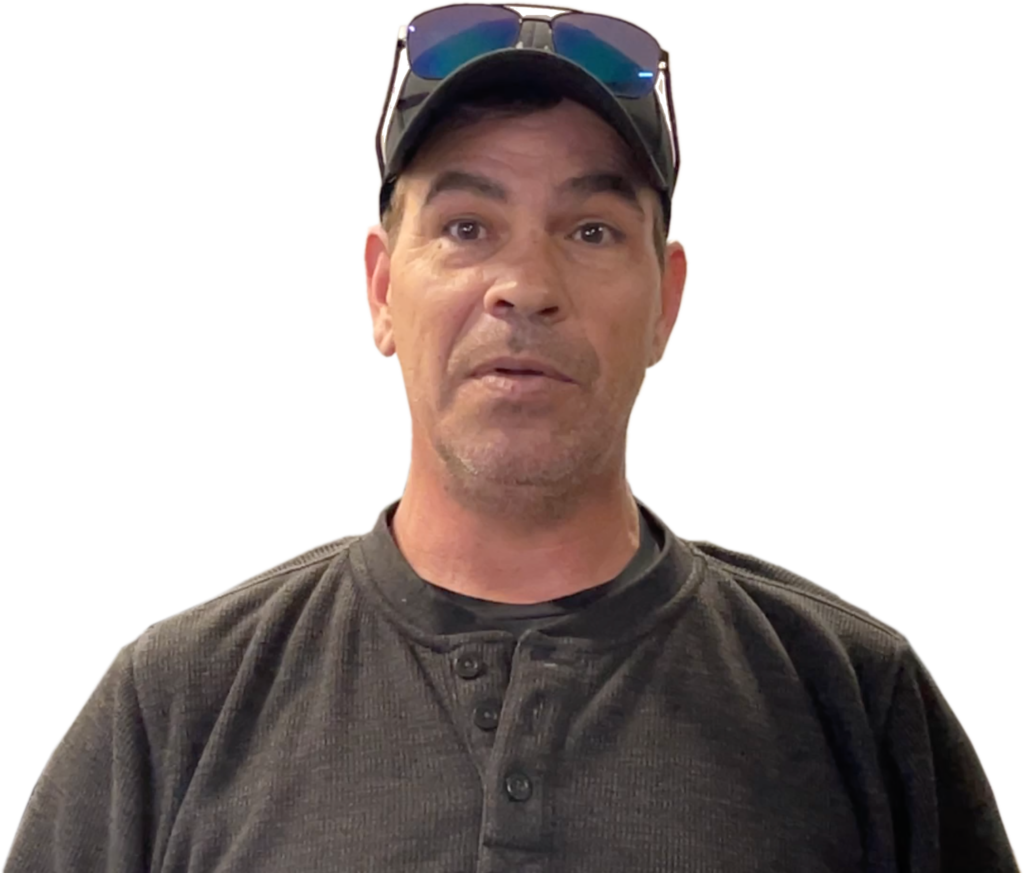
When one door closes, another opens
Although Mr. French received an outpouring of local support in the wake of the raid, he didn’t think it was prudent to re-open on the territory since Band Council was clearly colluding with the police to undermine his rights. As he put it, “I couldn’t keep open here for the fear of retaliation from elected Chief and Council. I kept those seven families going as long as I could and drained all of my financial accounts.” However, Mr. French was reluctant to completely give up on the cannabis industry. To a large degree, his reasons were personal and grounded in his own experiences of using cannabis to heal himself.
In May of 2012 Mr. French was working as a sanitation worker in London, Ontario. He was driving a garbage truck and standing on the side boards when he lost control of the vehicle as it went down the hill. He had to jump out of the truck in order to save himself. He hit the ground hard and crushed his 5th 6th and 7th vertebrates. Doctors were quick to prescribe him multiple pain pills including hydromorphone, percocets and Lyrica. According to Mr. French, “my doctors told me that I’d be permanently disabled and that I’d be unable to move properly or even to swim.”
One day as he was suffering, a friend made him some cannabis cookies to treat his pain. After eating the cookies and smoking a joint, all of a sudden Mr. French realized he could stand up straight again. Thanks to consuming CBD and THC edibles, Mr. French got off the pain pills and began to rehabilitate his body. Within months, he was swimming again and enjoying a full range of motion. Inspired by the transformation that medicinal cannabis had made in his life and well aware of the ravages of the opioid epidemic, Mr. French saw medicinal cannabis clinics as a compelling way forward – not just for business, but for people’s health.
So, despite the raid, there was no way he was going to give up. Instead, Mr. French applied his expertise in the cannabis industry to open shops with partners in surrounding communities. He assisted the first few shops that opened in Oneida, and his family members continue to manage a few of the shops there. He also partnered to open a shop in Walpole Island, and another one in Ipperwash. Most recently, Mr. French has opened a store in partnership with the elected Chief of Munsee First Nation at 92A melbourne Rd. Despite the efforts of his own Band Council to shut him out of the cannabis industry on his own territory, Mr. French has persevered and become a significant figure in the Indigenous cannabis industry.
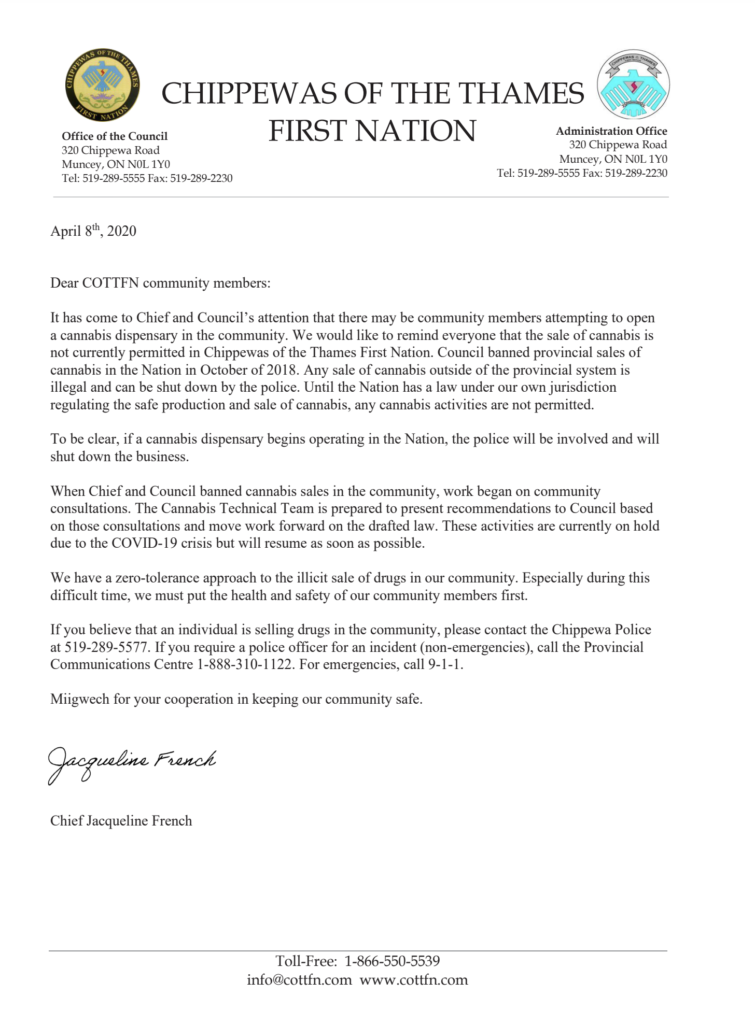
Band Council undermines Indigenous rights
For it’s part, the COTTFN Band Council has remained steadfast in its opposition to sovereign Indigenous cannabis stores. An April 8th, 2020 statement by Elected Chief Jacqueline French, restated COTTFN’s position. “The sale of cannabis is not currently permitted in Chippewas of the Thames First Nation…. Any sale of cannabis outside of the provincial system is illegal and can be shut down by the police. Until the Nation has a law under our own jurisdiction regulating the safe production and sale of cannabis, any cannabis activities are not permitted…. We have a zero-tolerance approach to the illicit sale of drugs in our community.”
While the Chippewa of the Thames Band Council has continued to oppose grass roots efforts by Chippewa people to open their own shops, it has made a series of investment decisions under Canada’s licensed cannabis regime. In 2018-19, the COTTFN purchased 6.5 shares of 10552763 Canada Corp, a Canadian cannabis company operating under the name Garden Variety for over $450,000. According to the Band Council minutes, no dividends are expected until 2022.
In 2020 the Band Council purchased 21% of the shares of Sensi Brands Inc. in a passive equity partnership. The purchase of the shares was financed by the band through a $2 million loan that the Chippewa Development Corporation took out with the Royal Bank over a ten year period. Expected dividends from Sensi Brands will not be paid out for several years, and the dividends will first have to be used to pay back the capital loan.
These investments have so far brought no returns to the membership of the Chippewas of the Thames outside of two trainee positions to work as a “Cultivation, Sanitation & Processing Technician” at $18 an hour. All business activity in the COTTFN’s corporations will also be subject to taxation by the Government of Canada. This has led to outrage and frustration from community members who feel that their money has been sunk into these businesses and yielded no returns.
Fighting and winning a constitutional challenge
Frustrated by the actions of the COTTFN Elected Council, Mr. French has looked for help in fighting his court case and re-opening his store in Chippewa of the Thames. In the spring of 2022, he reached out to Chief Del Riley, a former National Chief who is also the hereditary Chief of the Crane Clan of the Chippewa Nation, the Clan to which Mr. French belongs.
Chief Riley has a well known national profile, and is no stranger to politics in Chippewa of the Thames, where he was twice elected as Band Council Chief. Chief Riley played a prominent role on the national stage as the last President of the National Indian Brotherhood, and in that capacity he helped to author and negotiate Sections 25 and 35 to entrench Aboriginal and Treaty rights in the Canadian Constitution. Chief Riley is also past President of the Union of Ontario Indians (now the Anishinabek Nation), and a past chairman of the World Council of Indigenous Peoples.
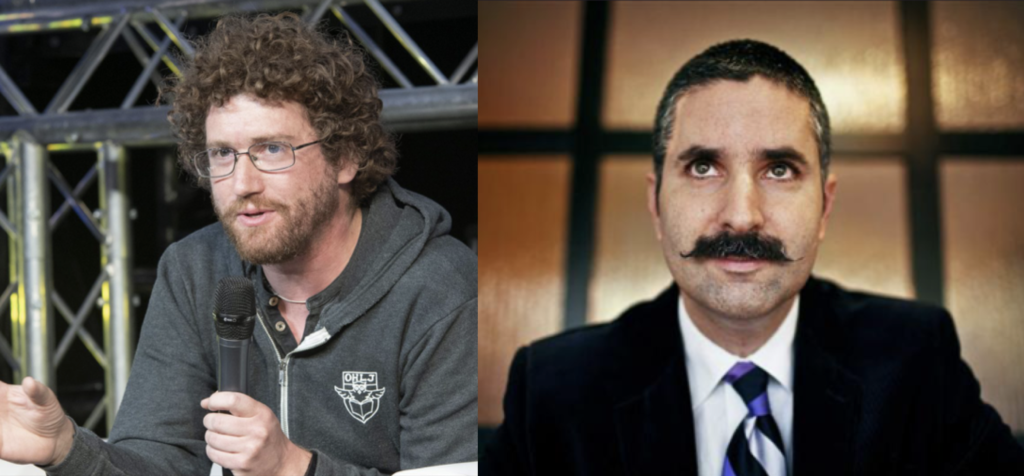
For the first three and half years of his legal battle, Mr. French fought his own court case representing himself. “I stood up for my rights, and I refused to take a plea deal, but I couldn’t afford a lawyer because everything was taken from me.” By early 2022, Mr. French had retained the services of renowned cannabis lawyers Jack Lloyd and Paul Lewin, who have been instrumental in the legal battles leading to cannabis legalization.
With the involvement of Chief Riley, the lawyers now had a legal expert who was not just well versed in the Canadian constitution and Aboriginal Rights, but who had actually negotiated the key sections of the Constitutions enshrining aboriginal rights. Chief Riley pulled no punches with his criticism of the cannabis “laws” and moratorium being proclaimed by the band council.
According to Chief Riley, “Any ‘laws’ or regulations the COTTFN might make on the cannabis issue are null and void because they have no jurisdiction on this matter. The Band Council only has the right to deal with the very specific, and highly limited responsibilities delegated to them under The Indian Act. Moreover, Chief and Council is required to uphold the Canadian Constitution – including Sections 25 and 35 which protect the Aboriginal and Treaty rights of people such as Mr. French.”
Chief Riley has been very active in the cannabis issue, and as he explained in a video interview conducted in Alderville First Nation in 2021, (see Part 1 and Part 2) cannabis is a constitutionally protected Aborginal Right. In his opinion, the authority to regulate cannabis lies with the traditional people, not the Band Council. This is because all Band Councils are a creation of the Indian Act and the Canadian Parliament.
As the Chief puts it, “Band Councils are legal entities that can sue and be sued, but they did not make any treaties with anyone, do not own any land, and do not have any Aboriginal or Treaty Rights.” The sovereign rights holders on the unceded lands of the Chippewas of the Thames are the Chippewa people like Mr. French who live in accordance with the customs and conventions of their people – not the institutions of the Federal Government which exist to discharge the Crown’s fiduciary obligations to Indians.
According to Chief Riley, the Band Council’s fictitious “cannabis moratorium” is materially harming the financial interests of Mr. French, and the Band is violating its fiduciary obligations to him. In his view, “Any violation or modification of treaty-negotiated rights is a violation of Section 35. This puts the Band Council at risk of legal action from Mr. French and others rights holders who are being harmed by the Band Council’s failure to uphold its fiduciary responsibilities and the Aboriginal rights protected under the Canadian Constitution.”
In a discussion filmed with Mr. French, Chief Riley explained that cannabis is an Aboriginal right, and that the Federal and Provincial governments have no say in the Indigenous cannabis industry on unceded lands. As Chief Riley put it, “The Province is not a state. We are a nation. How do we discuss rights with an administrative unit? That’s all the province is, an administrative unit of the Federal government. When it comes to rights… we have to deal with the state, so that means the federal government. That’s why you see nation to nation discussions. This is the way things should be resolved.”
The Chief continued, “The provinces were created in 1867. We were already established here. We don’t even know how they included our whole treaty areas in the province cause they never discussed it with us. We have a whole myriad of issues that would have to be discussed based on what the province has done to us…. Nobody has purchased our lands, yet they’re profiting off our resources and property and totally benefiting themselves and not our people and that’s got to change.”
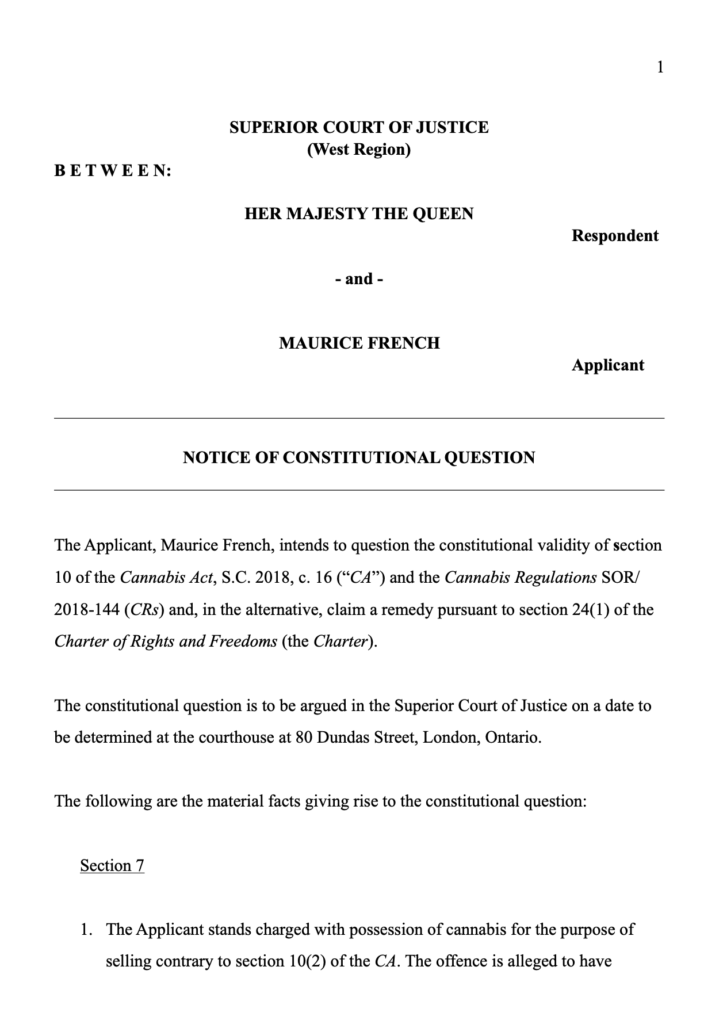
With Mr. French’s new legal team and the input of Chief Riley, a constitutional challenge was put forward in the spring of 2022. The challenge, filed by lawyer Paul Lewin articulated an argument based on the rights of Indigenous people to provide medicinal cannabis in person from their unceded lands. The result was a quick backpedalling from the Crown and the dropping of all charges against Mr. French.
As Mr. French put it, “The Crown wanted this out of the courts so fast that they dismissed all charges against me. They found out who Chief Del was and they had a different tone and wanted this off the records as quick as possible.”
Mr French added, “The courts did not want to fight the constitutional challenge because when they lose it’s going to open the doors for more businesses and opportunities for First Nations off-reserve. They wanted to dismiss the case and drop the charges because they realized that we were selling medicine on unceded land. There was no threat or safety issues to the community. There was no community complaints, not one person complained about the business being there. It boiled down to they didn’t want to fight the challenge, they’d rather dismiss the case entirely.”
While the dropping of the charges is a victory for Mr. French, he has suffered from the whole ordeal. Not only did he and seven employees he hired miss out on the income from the store, but the Crown did not return everything they seized. According to Mr. French, “They destroyed my flower and concentrates and shatter, worth about about 100k in current market value. They destroyed all that and gave me back a bit of cash, my press, my computer and DVD player. Now I have to go through another court battle to seek restitution.”
For his part, Mr. French is planning to re-open his shop on his land. “It’s not fair to me and my family to get driven away and have to go out and make money for everyone else. I have family here that needs to make money. I’m coming back home. This is four years that they couldn’t get their shit straightened out here. I gave them time. They told me don’t open back up. I stuck to my end, I didn’t open back up, didn’t go against them. Now it’s four years later and I can’t do it anymore. There’s shops opening up all around us, and the non-natives are squeezing us out.”
As for the COTTFN, Mr. French says, “They still have their BCR’s in place, but I think they’re going to have to lift. My charges being dropped showed that there’s no validity to Chief and Council’s moratorium. There was no validity to the warrant, charges, even them being on our territory at all. That’s my argument. We’re selling our medicines on our ancient trading routes that we’ve been on for thousands of years. We have the right to do business with tobacco, cannabis, gasoline or anything else.”
A grand opening for the Way Forward Healing Centre at 137 Three Fires Rd, Chippewas of the Thames, is planned for June 30th. Chief Riley will be in attendance and will be making a speech on the matter. This time, Mr. French is willing to stand his ground and fight for his rights. “I should never shut down, I should have opened up the next day. This is my land, my territory that I’m on, not theirs.”
Former elected Chief Myeegun Henry who is now an elected Band Council member at the COTTFN was asked to comment but declined to respond, instead requesting to defer comment on this topic to current Chief, Jacqueline French. Elected Chief French and COTTFN were asked for comment for this article but did not respond to requests for an interview.

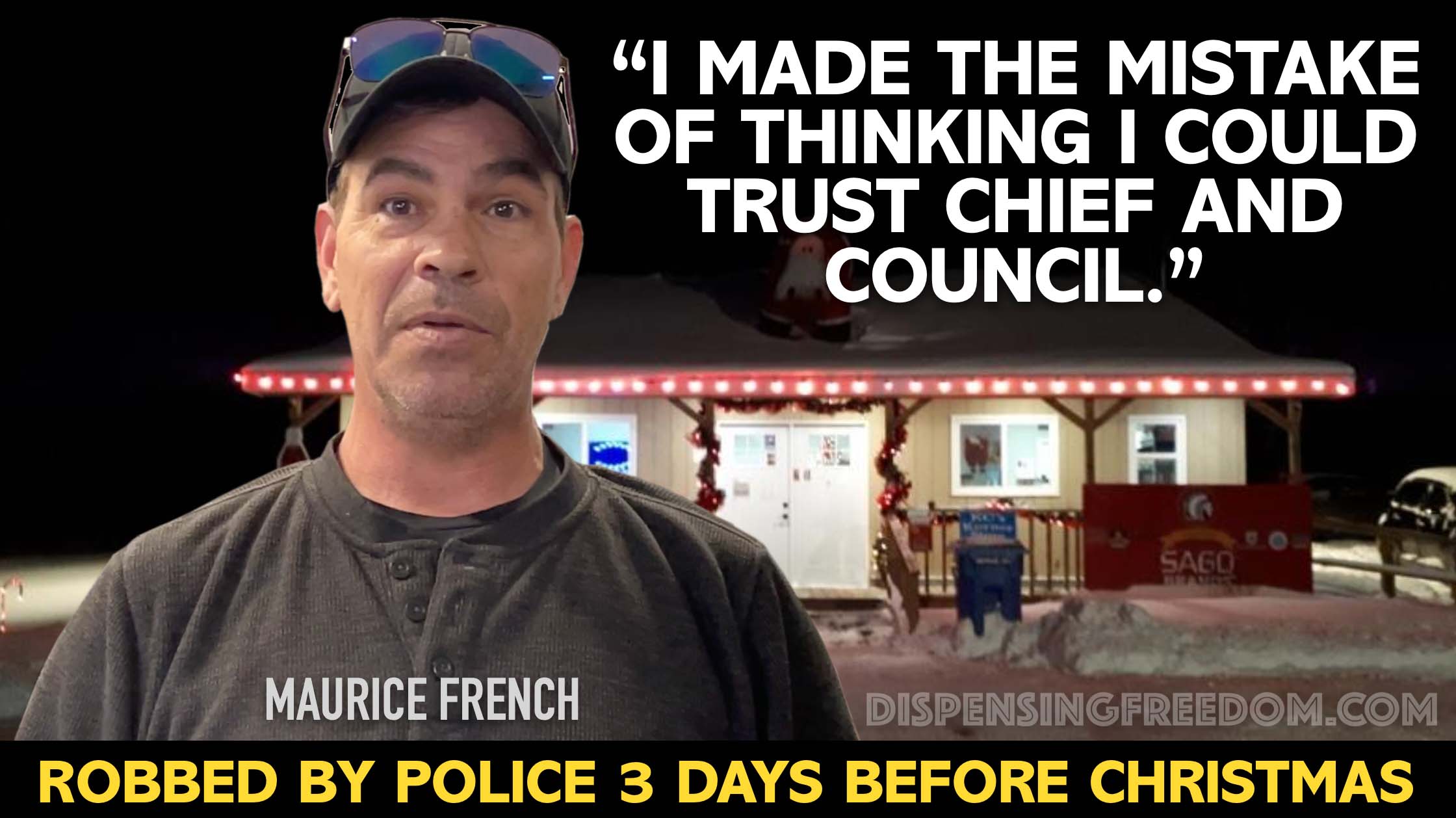



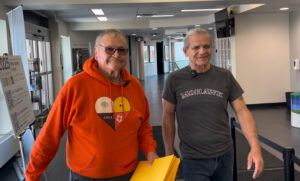
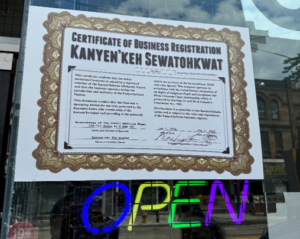


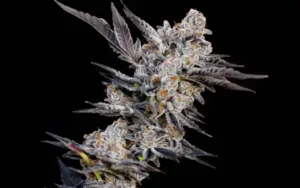


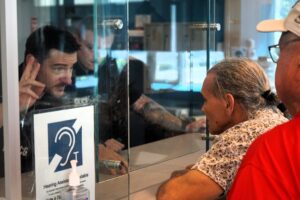


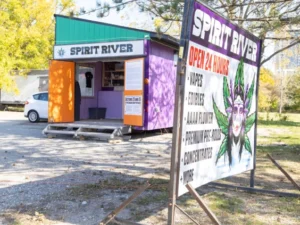
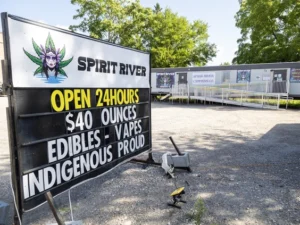
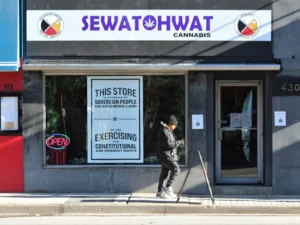

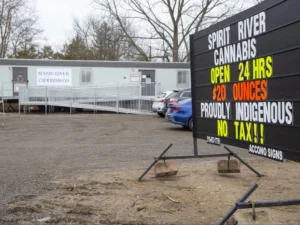
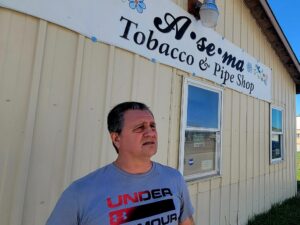
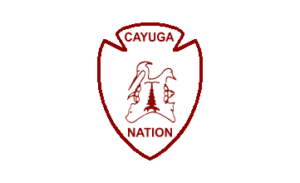

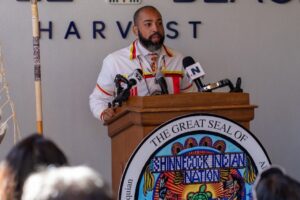


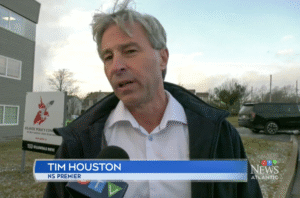


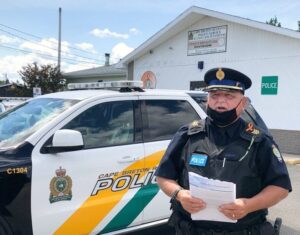

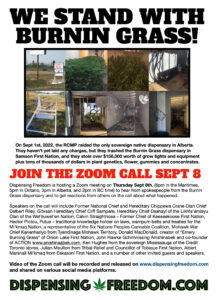




Comments are closed.